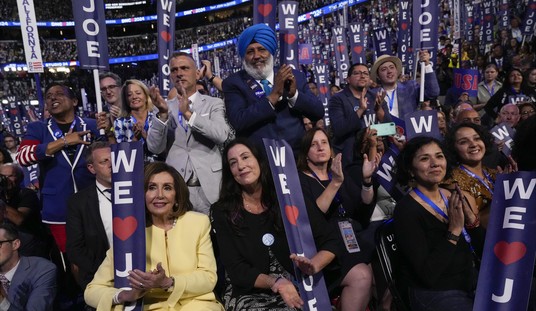Let’s be clear. As Guy and many others have written, there are no winners in the Zimmerman acquittal. A young man is dead and another man’s life is irrevocably changed. In fact, Mr. Zimmerman can’t even get pulled over for speeding without the national press harassing him. So it’s very important we keep things in perspective.
But at the same time, is this a serious request?
A director at the Smithsonian Institution has expressed interest in acquiring the hooded sweatshirt worn by Travyon Martin on the night he was fatally shot by neighborhood watch volunteer George Zimmerman.
Lonnie Bunch, director of the Smithsonian's National Museum of African American History and Culture told The Washington Post Martin's hoodie represents an to further the discussion about race in America.
“It became the symbolic way to talk the Trayvon Martin case. It’s rare that you get one artifact that really becomes the symbol,” Bunch told the newspaper. “Because it’s such a symbol, it would allow you to talk about race in the age of Obama.”
Bunch, who has acquired a guard tower from Louisiana’s Angola State Penitentiary and the handcuffs used to restrain Harvard scholar Henry Louis Gates Jr. in 2009, said he'd like to have the hoodie for his collection once the legal case is over.
The Justice Department had placed a hold on evidence in the case, including Zimmerman's gun, as it conducts a civil rights investigation.
Recommended
Never mind that Zimmerman was acquitted of murder and that by any objective measure he wasn’t a racist. One could argue he made a terrible decision the night Trayvon Martin was killed by getting out of his car, but that’s a far cry from perpetrating a hate crime. The assumption here is that an innocent teenager in Florida was targeted solely because of the color of his skin, and thus the sweatshirt in a sense represents black victimhood. But the facts of the case are much more complicated. Let’s also not forget that the media invented a new ethnicity -- “white Hispanic” -- to vilify Zimmerman as the poster boy for white racism even though Zimmerman himself is (in part) African-American.
This Smithsonian director argues we must preserve the sweatshirt for posterity so we can “talk about race in the age of Obama.” Question: Do we really need a sweatshirt to do that?
No, we don’t.
If we really wanted to have a conversation about race, we could start by discussing the unacceptable violence and black-on-black homicide rates in Chicago. More American citizens have been killed in the Windy City since 2001 than in Afghanistan. Think about that. And by the way, why is Sharpton et al. obsessed with this one case in particular -- as tragic and heartbreaking as it is -- but willing to ignore the countless and brutal crimes taking place every single day in America’s inner cities?
The sweatshirt is significant because it has become a symbolic item in a high-profile and polarizing judicial court case. But hanging it up on display in a Smithsonian museum just seems like desperate political opportunism. It is an obvious attempt to politicize and racialize a young man’s death -- a tragedy that even a Martin family attorney has said on the record, as Allahpundit reminded us yesterday, had nothing to do with race.
























Join the conversation as a VIP Member